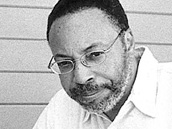Echoes of Africa: An Historical Novel in Two Parts
by Dr. Bridglal Pachai
Pachai Consultancy, 2010
$18.50
Dr. Bridglal – “Bridge” – Pachai, C.M., Ph.D., D.C.L., is one of those eminences who seems to have done just about everything. Born in the village of Umbulwana, in Ladysmith, Natal, South Africa, he was a factory worker and a teacher before becoming a history professor. Dissatisfied with life in a then-white-supremacist nation, and wishing for true equality of opportunity, the South Asian-African left his homeland to teach elsewhere, including in Ghana and Malawi. In 1975, he emigrated to Canada, and settled in Halifax, N.S., where he is now professor emeritus of Saint Mary’s University.
Pachai is a historian of a humanist and humanitarian bent, a point verified in his twenty works on African and African-Nova Scotian (“Africadian”—my word) history and in his two memoirs, but also in his extracurricular labours, so to speak, heading up the Nova Scotia Human Rights Commission and also the Black Cultural Centre for Nova Scotia. He has also returned to Africa, twice, to teach in Nigeria and in The Gambia. Given his lustrous biography, it is natural that his first novel, Echoes of Africa: An Historical Novel in Two Parts, dwells on the history that has shaped—and is shaping—the continent of his birth and, specifically, South Africa itself.
However, this book is not one novel, but two, and their main connection is the fact that they are by the same hand and contained within the same covers (prepared by Dan O’Brien, of Design North, Halifax, N.S.). Book I, titled “Small Steps to Somewhere,” seems rooted in autobiography. It tells of three Africans, Kaluwa, Khonje, and Mataka Phiri, who, during the German-British strife of World War I-era Africa, leave “the parched and pokey ground” of villages to find work, aided by Christians, in larger towns and cities.
Book I reads like a blend of Motorcycle Diaries (without the motorcycle) and Alan Paton’s classic novel of apartheid South Africa, Cry, The Beloved Country (1948). We see young men finding themselves, while ‘on the road,’ but also witnessing – or hearing of – bloody, native insurrections against European imperialism, but also discovering the ideas of international black solidarity and the passive resistance politics of a certain Indian lawyer surnamed Gandhi. Eventually, Khonje and Kaluwa find themselves in the United States, where they graduate from high school and university, and become writers and orators. (Mataka Phiri remains in Africa, but is a Christian minister with an Afrocentric focus.)
Book I is well written, but, except for the discussion of the rebellion, there is little action or plot. The story is almost a biblical tract, where we learn that education and good will (plus help from charitable others) can put bright, young men on the path to self-improvement and social activism. But Pachai does provide a scathing portrait of imperialism and racism. Mataka himself states, of the Europeans, “They overstayed, took over, pushed the natives away, became masters and rulers and devils.” Although Christians aid Khonje and Kaluwa in their travels, missionary Christianity is rebuked as a matter of “cut-throat competition to win over African souls to pay homage to western civilization.” It may sound cynical, but it is Political Science 101.
Book II, titled “That Paradise for a Few,” is a more satisfying novel, because it has rounded characters and an engaging plot. At the dawn of the apartheid era (late 1940s), a white farmer chooses to use a policy of racial division as a means to advance his own political fortunes. But the policy is based on hypocrisy: He and other white farmers and businessmen have no qualms about keeping black and brown mistresses and even fathering ‘Coloured’ children.
However, they believe that apartheid is a price worth paying to achieve a white “paradise.” These machinations result in family splits, cold-blooded murders, a race riot, and the necessity to erect a police state. Here Pachai refers to, not only Paton’s novel, but also Shakespeare’s Julius Caesar. If Book I is sentimental (save for political insights), Book II is tragic, spicy, and a damn, fine read. It is contradictions in characters – what makes them human – that make us care about their fates.






No Comments so far ↓
There are no comments yet...Kick things off by filling out the form below.